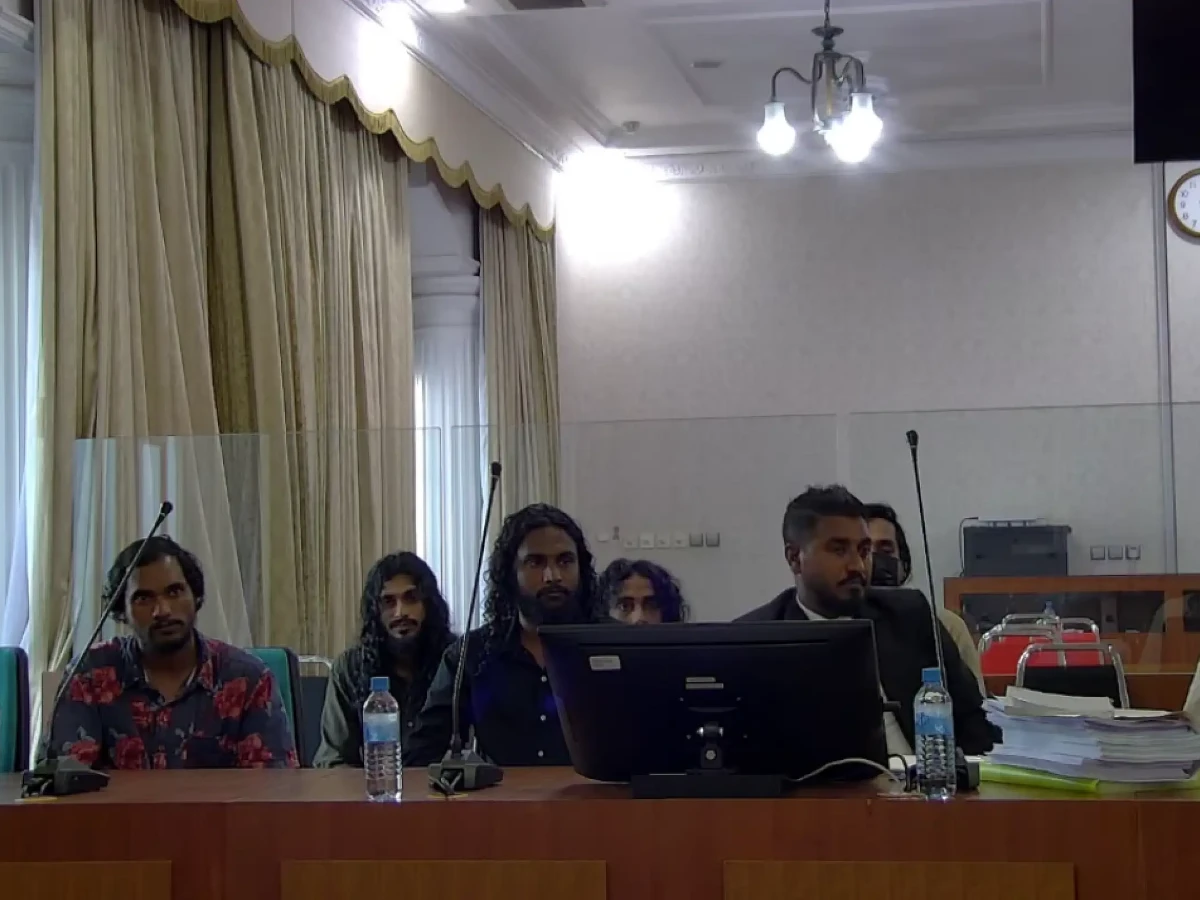
SC rules HC wrong to refrain from arresting accused in Anas murder
Anas, from Fenfiazge in R. Meedhoo, was murdered on 31 July 2017.
The Supreme Court on Monday ruled that the High Court made an error by not arresting those accused of killing Mohamed Anas at the Litus Service Center six years ago.
Anas, from Fenfiazge in R. Meedhoo, was murdered on 31 July 2017. Seven individuals were charged with two separate offences:
Charge of intentional homicide:
-
Afrah Abdul Razzaq
-
Ahmed Zayan
-
Usman Shareef
Charge of participation in intentional homicide:
-
Junaid Abdulla
-
Hassan Mahfouz
-
Simah Moosa
-
Mohamed Shaz
Six years after Anas' death, on 25 February 2024, the Criminal Court acquitted all of the accused. On 16 May 2024, the prosecution appealed the lower court’s decision and sought to remand the individuals in custody pending the appeal hearing.
When the prosecution appealed the High Court's judgment to the Supreme Court, a majority of two judges ruled that the High Court had overstepped the law by not ordering the arrest of the accused.
The High Court considered several factors before its decision:
-
The likelihood of success on appeal
-
The potential loss of substantial community interest
-
The possibility of the accused fleeing
Justice Mohamed Ibrahim, supported by Justice Ali Rasheed, stated that the law now outlines clear procedures for deciding remand in custody pending appeal in unconvicted cases. These procedures were added to Article 199 of the Criminal Procedure Code by Parliament in December.
The amended law specifies that for offences such as rape, child sexual abuse, corruption, and murder, the following factors should be considered for detention pending an appeal:
-
Sufficient evidence to support the accusation
-
The possibility of evidence being concealed or witnesses being influenced
-
The potential danger to society
However, Justice Aisha Shujoon disagreed. Her opinion noted that the prosecution must demonstrate the presence of circumstances outlined in Article 199 of the Criminal Procedure Code. The prosecution had submitted evidence to the lower court but failed to show how this evidence proved any of the necessary circumstances for detention.
Justice Shujoon further noted that since the perpetrators’ identities were not determined by the court, detention pending the appeal could not be justified in such a case.
Former President Ibrahim Mohamed Solih had commuted the sentence of the only child convicted and sentenced in connection with the case.




